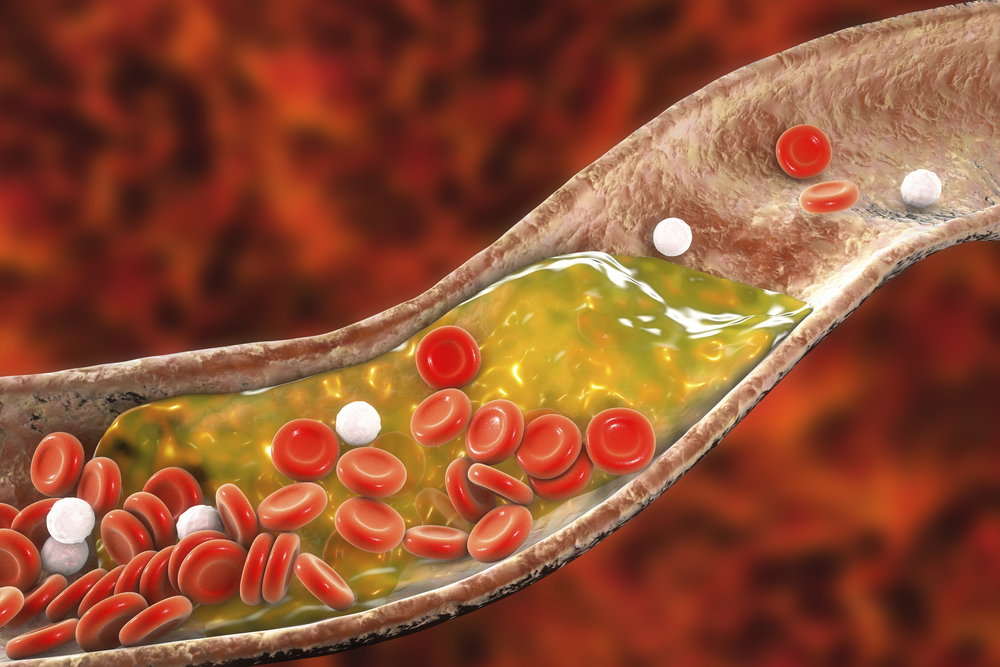
What is being tested?
Apolipoproteins are molecules that carry cholesterol in your blood as tiny particles called lipoproteins. Apo A is an apolipoprotein that is part of the high-density lipoprotein (HDL) particle. HDL is known as the "good" lipoprotein because it helps rid the body of excess cholesterol in the blood. Excess cholesterol can deposit in the arteries causing hardening (atherosclerosis) leading to heart disease and other vascular diseases.
If your level of Apo A is low this suggests you have a low level of "good" HDL particles in your bloodstream. This may mean that you have a higher risk of developing heart disease and other vascular diseases.
How is it used?
Apo A may be requested to help judge your risk of having heart disease (coronary artery disease) or other vascular diseases. It is not used routinely but may be helpful in patients who have a high level of cholesterol or fat in the blood (hyperlipidaemia) or a family history of hyperlipidaemia or heart disease. An Apo A test may also be ordered to monitor the effectiveness of lifestyle changes and lipid treatments.
When is it requested?
Apo A may be requested if you have a high level of cholesterol or fat in the blood (hyperlipidaemia) or a family history of hyperlipidaemia or heart disease, particularly heart attacks at a relatively young age.
It may be requested along with an apolipoprotein B (Apo B) level if your doctor wants to check your Apo A/Apo B ratio. This basically shows the ratio of "good" to "bad" cholesterol.
Your doctor may order Apo A, along with other tests, to see if the level of cholesterol and fat in your blood is improving in response to medication or lifestyle changes such as eating less fatty food and exercising more.
What does the result mean?
A low level of Apo A in the blood is associated with a low level of HDL, the "good" cholesterol particle in the blood. This suggests your body is not getting rid of excess cholesterol well and this may increase your chance of developing a vascular disease such as coronary artery disease (heart attacks) or circulation problems in the legs.
A low level of Apo A in the blood may run in the family, e.g. in the inherited (genetic) condition familial hypoalphalipoproteinaemia. More commonly, Apo A is decreased due to:
A high level of Apo A in the blood is usually not a problem. A high level of Apo A may run in the family. More commonly, Apo A may be increased due to:
Is there anything else I should know?
The Apo A level in the blood reflects the amount of HDL, the "good" cholesterol particles, in the blood. Women tend to have higher HDL, so they may also have higher levels of Apo A.
The Apo A test is not routinely used. Doctors and scientists still have to determine the best uses for Apo A. It may provide your doctor with additional information in specific situations but does not replace the lipid tests routinely available.
Common questions
Regular exercise is one of the best ways to raise HDL and Apo A. By decreasing the fat in your diet, maintaining a healthy weight and exercising you can help decrease your risk of developing heart disease.
Is Apo A the same as other lipids with similar names?
There is another lipid test known as lipoprotein (a), Lp(a) or apolipoprotein (a). This is a completely different test.
More information
What is Pathology Tests Explained?
Pathology Tests Explained (PTEx) is a not-for profit group managed by a consortium of Australasian medical and scientific organisations.
With up-to-date, evidence-based information about pathology tests it is a leading trusted source for consumers.
Information is prepared and reviewed by practising pathologists and scientists and is entirely free of any commercial influence.